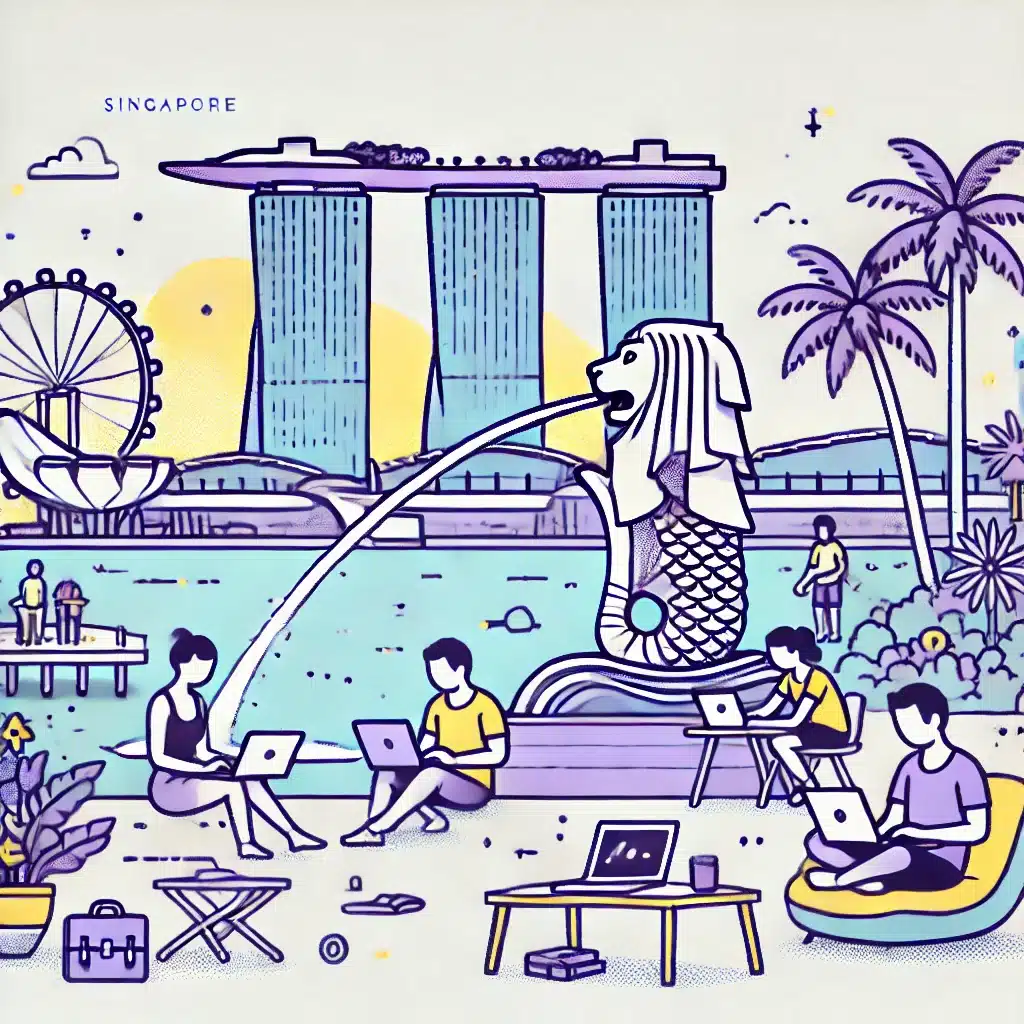
Working Remotely from Singapore: A Practical Guide for Digital Nomads and Remote Professionals
🛂 Visa Limitations and Entry Options
Unlike Thailand or Indonesia, Singapore currently does not have a specific digital nomad visa. Most remote workers enter on a tourist visa (short-term visit pass), which allows stays of up to 30 or 90 days depending on nationality. Technically, working on a tourist visa is not allowed if your income is derived locally, but if you’re employed abroad and simply working online during your stay, it has been a common practice.
Important: Always check with the Singapore Immigration & Checkpoints Authority (ICA) or consult an immigration advisor to ensure compliance, as visa misuse can lead to bans.
Those looking for longer-term options often consider:
-
Employment Pass (EP) if employed by a Singapore company
-
EntrePass for entrepreneurs starting an eligible business
-
Personalised Employment Pass (PEP) for high-earning professionals
-
Dependent Pass (for spouses of EP holders) with a Letter of Consent if working remotely
💻 Internet Speed and Infrastructure
Singapore boasts one of the world’s fastest internet speeds, with average fixed broadband speeds exceeding 260 Mbps and mobile speeds around 100 Mbps, according to Speedtest Global Index. This makes video conferencing, large file transfers, and streaming seamless.
🏢 Coworking Spaces and Cafes
While working from your serviced apartment or hotel room is common, Singapore offers an extensive range of coworking spaces such as:
-
WeWork (multiple CBD locations)
-
The Hive (Lavender, Carpenter Street)
-
JustCo (Marina Square, Raffles Quay)
-
The Great Room (Raffles Hotel Arcade, Ngee Ann City)
Prices range from SGD 350 – 800 per month for hot desks depending on location and membership perks.
For casual workdays, cafes like Atlas Coffeehouse (Bukit Timah), The Book Cafe (Robertson Quay), or Kurasu (Waterloo Street) offer reliable Wi-Fi and a remote-worker-friendly atmosphere, though working long hours in cafes is not a strong part of Singapore’s culture.
👔 Time Zones and Work-Life Balance
Singapore’s GMT+8 time zone is ideal for those working with Australia, New Zealand, and much of Asia. For US or European clients, expect evening or night calls.
Work-life balance is generally efficient; many coworking spaces host networking events, and with Singapore’s world-class transport system, exploring hawker centres, gyms, and city parks after work is easy.
🌟 Final Thoughts
Singapore offers unmatched safety, cleanliness, and urban conveniences for remote work, alongside rich cultural experiences and easy travel connections to Asia-Pacific. As the global workforce shifts towards flexible working, Singapore remains a strategic base for ambitious remote professionals.
“The future of work is borderless, and Singapore is positioning itself as a gateway to the world.” – Lee Hsien Loong, Prime Minister of Singapore